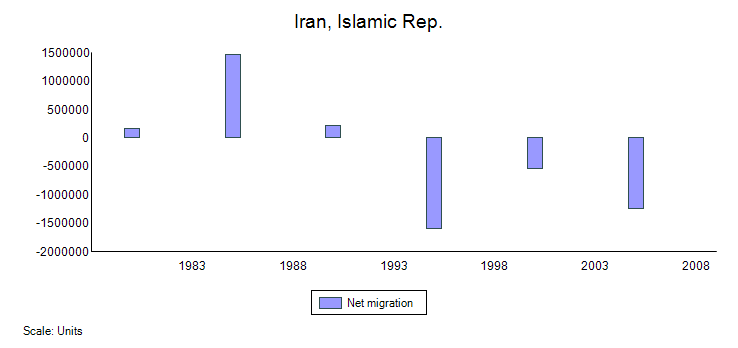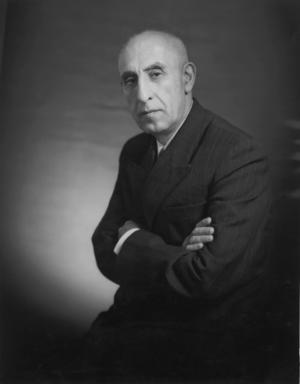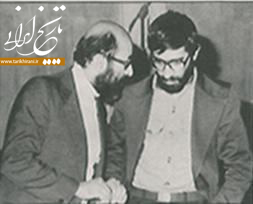|
Political Factions In Iran
Politics in the History of the Islamic Republic of Iran, Islamic Republic of Iran are dictated by political faction, factionalism. All political parties were banned in the Islamic Republic in 1987. Today, several political factions encapsulate the political landscape in the Persian country, and scholars such as Maziar Behrooz, Behzad Nabavi, Bahman Baktiari, Maaike Warnaar, Payam Mohseni, have given different formulations of them, varying in number (usually between three and five) and orientation (ideological purity vs. pragmatism, support for political and religious freedom vs. authoritarianism, support for regulation and intervention in the marketplace vs. laissez faire policies). According to at least one source, (Alireza Nader, David E. Thaler and S. R. Bohandy), political factions hold more sway than Iran's "relatively weak elected institutions" in decision making and policy making,#NSPAN2011, Nader, ''Next Supreme Leader'', 2011: p.11 especially under Supreme Leader Ali Khamen ... [...More Info...] [...Related Items...] OR: [Wikipedia] [Google] [Baidu] |
History Of The Islamic Republic Of Iran
One of the most dramatic changes in government in Iran's history was seen with the 1979 Iranian Revolution where Shah Mohammad Reza Pahlavi was overthrown and replaced by Ayatollah Ruhollah Khomeini. The authoritarian monarchy was replaced by a long-lasting Shiite Islamic republic based on the principle of guardianship of Islamic jurists, (or '' Velayat-e faqih''), where Shiite jurists serve as head of state and in many powerful governmental roles. A pro-Western, pro- American foreign policy was exchanged for one of " neither east nor west", said to rest on the three "pillars" of mandatory veil (''hijab'') for women, and opposition to the United States and Israel. A rapidly modernizing capitalist economy was replaced by a populist and Islamic economy and culture. The leader of the revolution and founder of the Islamic Republic, Ayatollah Ruhollah Khomeini, was the Supreme Leader of Iran until his death in 1989. He was followed by Ali Khamenei. From 1999 to present, there have ... [...More Info...] [...Related Items...] OR: [Wikipedia] [Google] [Baidu] |
Iranian Reformists
The Reformists () are a political faction in Iran. Iran's "reform era" is sometimes said to have lasted from 1997 to 2005—the length of President Mohammad Khatami's two terms in office. The Council for Coordinating the Reforms Front is the main umbrella organization and coalition within the movement; however, there are reformist groups not aligned with the council, such as the Reformists Front. Masoud Pezeshkian, a reformist, was elected president following the 2024 Iranian presidential election, and was subsequently confirmed by Supreme Leader Ali Khamenei on 28 July. Background Organizations The 2nd of Khordad Movement usually refers not only to the coalition of 18 groups and political parties of the reforms front but to anyone else who was a supporter of the 1997 reform programs of Khatami. The reforms front consists of several political parties, some of the most famous including the following: * Islamic Iran Participation Front: key figures are Mohammad Reza Kha ... [...More Info...] [...Related Items...] OR: [Wikipedia] [Google] [Baidu] |
National Front (Iran)
The National Front of Iran () is an opposition political organization in Iran. It was founded by Mohammad Mosaddegh in 1949, and it is the oldest and arguably the largest pro-democracy group operating inside Iran, despite having never been able to recover the prominence it had in the early 1950s. Initially, the front was an umbrella organization for a broad coalition of forces with nationalist, liberal-democratic, socialist, '' bazaari'', secular and Islamic tendencies, that mobilized to successfully campaign for the nationalization of the Iranian oil industry. In 1951, the Front formed a government which was deposed by the 1953 Iranian ''coup d'état'' and subsequently repressed. Members attempted to revive the Front in 1960, 1965, and 1977. Before 1953 and throughout the 1960s, the Front was torn by strife between secular and religious elements. Over time its coalition split into various squabbling factions, with the Front gradually emerging as the leading organization of ... [...More Info...] [...Related Items...] OR: [Wikipedia] [Google] [Baidu] |
Mehdi Bazargan
Mehdi Bazargan (; 1 September 1907 – 20 January 1995) was an Iranian scholar, academic, long-time pro-democracy activist and head of Interim government of Iran, 1979, Iran's interim government. One of the leading figures of Iranian Revolution of 1979, he was appointed Prime Minister of Iran, prime minister in February 1979 by Ayatollah Khomeini, making him Iran's first prime minister after the revolution. He resigned his position in November of the same year, in protest at the Iran hostage crisis, takeover of the U.S. Embassy in Iran and as an acknowledgement of his government's failure in preventing it. He was the head of the first engineering department of University of Tehran. Early life and education Bazargan was born into an Iranian Azerbaijanis, Azerbaijani family in Tehran on 1 September 1907. His father, Hajj Abbasqoli Tabrizi (died 1954) was a self-made merchant and a religious activist in ''bazaar'' guilds. Bazargan went to France to receive university education ... [...More Info...] [...Related Items...] OR: [Wikipedia] [Google] [Baidu] |
Freedom Movement Of Iran
The Freedom Movement of Iran (FMI) or Liberation Movement of Iran (LMI; ) is an Iranian pro-democracy political organization founded in 1961, by members describing themselves as "Muslims, Iranians, Constitutionalists and Mossadeghists". It is the oldest party still active in Iran and has been described as a "semi-opposition" or "loyal opposition" party. It has also been described as a "religious nationalist party". The organization was split to the National Front (II), its establishment was supported by Mohammad Mossadegh. It then applied for the membership in the front with a platform advocating national sovereignty, freedom of political activity and expression, social justice under Islam, respect for Iran's constitution, the Universal Declaration of Human Rights, and the Charter of the United Nations. It believes in the separation of religion and state, while that political activity should be guided by religious values. FMI based on a moderate interpretation of Islam. It reje ... [...More Info...] [...Related Items...] OR: [Wikipedia] [Google] [Baidu] |
Combatant Clergy Association
The Combatant Clergy Association () is a politically active group in Iran, but not a political party in the traditional sense. It has never been registered as a political party; however, it acts as a fragmented caucus and has actively operated in the electoral arena, competing for votes. Thus, it is considered an elite party and can be classified as a political party according to the minimalist definition by Angelo Panebianco. The traditional conservative clerical association was the majority party in the fourth and fifth parliaments after the Iranian Revolution, Islamic revolution. The organization has great influence over non-elective institutions such as the Iranian Judiciary, judicial system, the Guardian Council and Iranian Revolutionary Guard, Revolutionary Guard Corps. History After the June 5, 1963 demonstrations in Iran, 15 Khordad demonstration failed in Iran, it was felt that a coherence organization was needed. The association was founded in 1977 by a group of cleri ... [...More Info...] [...Related Items...] OR: [Wikipedia] [Google] [Baidu] |
Association Of Combatant Clerics
The Association of Combatant Clerics () is an Iranian reformist Clericalism in Iran, clerical political party. It is regarded as a Left-wing politics, left-wing party within the Iranian political spectrum. History The Association of Combatant Clerics was founded in 1987 after abolition of the Islamic Republican Party, the last political party of that time. The association was originally radical, populist, rather than reformist in orientation, and favored a focus "on exporting the revolution and calling for the state's monopoly over the economy," rather than democracy and freedom of expression. As of 2007, it advocated limits on clerical power in Iranian politics and extending individual freedoms—though not to the extent that might "lead to secularism or liberalism."[Wright, Robin, ''Dreams and Shadows: The Future of the Middle East'', Penguin Press, 2008, p.300] After the resignation of Mehdi Karroubi from the post of secretary general, the party had no secretary general until ... [...More Info...] [...Related Items...] OR: [Wikipedia] [Google] [Baidu] |
Iranian Legislative Election, 1988
Parliamentary elections were held in Iran on 8 April 1988, with a second round on 13 May. The result was a victory for leftist politicians who later emerged as reformists. The number of clerics elected to the Majlis was reduced by over a third. Background In this election, the rival groups competed in various religious categories. Under these circumstances, religious groups that had previously gathered around the "Islamic" Republic and the militant clerical community were divided by different attitudes due to differences in different tastes. Combatant Clergy Association (), Association of Combatant Clerics (), and the "Coalition of the Oppressed and Deprived" were the three most important and active organizations in the elections. Due to the election propaganda atmosphere and the tendency of the people to the left wing (Association of Combatant Clerics, ) and due to the slogans of justice and equality and the defense of the deprived and oppressed by the Association of Combatan ... [...More Info...] [...Related Items...] OR: [Wikipedia] [Google] [Baidu] |
Iran–Iraq War
The Iran–Iraq War, also known as the First Gulf War, was an armed conflict between Iran and Iraq that lasted from September 1980 to August 1988. Active hostilities began with the Iraqi invasion of Iran and lasted for nearly eight years, until the acceptance of United Nations Security Council Resolution 598 by both sides. Iraq's primary rationale for the attack against Iran cited the need to prevent Ruhollah Khomeini—who had spearheaded the Iranian revolution in 1979—from exporting the new Iranian ideology to Iraq. There were also fears among the Iraqi leadership of Saddam Hussein that Iran, a theocratic state with a population predominantly composed of Shia Muslims, would exploit sectarian tensions in Iraq by rallying Iraq's Shia majority against the Baʽathist government, which was officially secular but dominated by Sunni Muslims. Iraq also wished to replace Iran as the power player in the Persian Gulf, which was not seen as an achievable objective prior to the Is ... [...More Info...] [...Related Items...] OR: [Wikipedia] [Google] [Baidu] |
Eastern Bloc
The Eastern Bloc, also known as the Communist Bloc (Combloc), the Socialist Bloc, the Workers Bloc, and the Soviet Bloc, was an unofficial coalition of communist states of Central and Eastern Europe, Asia, Africa, and Latin America that were aligned with the Soviet Union and existed during the Cold War (1947–1991). These states followed the ideology of Marxism–Leninism, in opposition to the Capitalism, capitalist Western Bloc. The Eastern Bloc was often called the "Second World", whereas the term "First World" referred to the Western Bloc and "Third World" referred to the Non-Aligned Movement, non-aligned countries that were mainly in Africa, Asia, and Latin America but notably also included former Tito–Stalin split, pre-1948 Soviet ally Socialist Federal Republic of Yugoslavia, Yugoslavia, which was located in Europe. In Western Europe, the term Eastern Bloc generally referred to the USSR and Central and Eastern European countries in the Comecon (East Germany, Polish Peo ... [...More Info...] [...Related Items...] OR: [Wikipedia] [Google] [Baidu] |
Western Bloc
The Western Bloc, also known as the Capitalist Bloc, the Freedom Bloc, the Free Bloc, and the American Bloc, was an unofficial coalition of countries that were officially allied with the United States during the Cold War (1947–1991). While the NATO member states, in Western Europe and Northern America, were pivotal to the bloc, it included many other countries, in the broader Asia-Pacific region, the Middle East, Latin America, and Africa with histories of anti-Soviet, anti-communist and, in some cases anti-socialist, ideologies and policies. As such, the bloc was opposed to the political systems and foreign policies of communist countries, which were centered on the Soviet Union, other members of the Warsaw Pact, and usually the People's Republic of China. The name "Western Bloc" emerged in response to and as the antithesis of its communist counterpart, the Eastern Bloc. Throughout the Cold War, the governments and the Western media were more inclined to refer to themse ... [...More Info...] [...Related Items...] OR: [Wikipedia] [Google] [Baidu] |
Mir-Hossein Mousavi
Mir-Hossein Mousavi Khameneh (, ; born 2 March 1942) is an Iranian politician, artist, architect and opposition figure who served as the 45th and last Prime Minister of Iran from 1981 to 1989. He was a reformist candidate for the 2009 Iranian presidential election, 2009 presidential election and eventually the leader of the opposition in the 2009–2010 Iranian election protests, post-election unrest. Mousavi served as the president of the Iranian Academy of the Arts, Iranian Academy of Arts until 2009, when conservative authorities removed him. Although Mousavi had always considered himself a reformist and believed in promoting change within the Constitution of Iran, 1979 constitution, on 3 February 2023, in the Mahsa Amini protests, violent suppression of Iranians by Ali Khamenei, the Supreme Leader of Iran, he announced his opposition to the Islamic Republic and asked for a widespread referendum to fully change the constitution and make a fundamental change in Iran's political ... [...More Info...] [...Related Items...] OR: [Wikipedia] [Google] [Baidu] |






